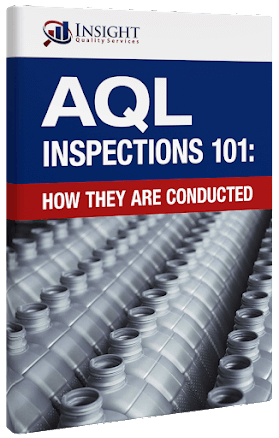Do You Need to Open an Office in China to Manage Manufacturing?



Table of Contents
A large or growing company faces many decisions about how to handle their Asian manufacturing, and among them is a high-stakes dilemma about how to interact with their factories: should a company invest in opening an office overseas (usually China) or attempt to indirectly manage their contracted factories from halfway around the world?
This decision is crucial because every company needs visibility into what their factories are doing. In addition, every factory needs to feel some accountability from their contractor in order to maintain sharp and consistent output.
The truth is, no matter how thorough your visits, sampling processes, and contracts are, you will still run into unexpected issues from time to time. And even if you have a great factory, you need some “boots on the ground” who can assess the situation from the outside looking in and report back to you.
So should you set up shop in China to keep an eye on the factory or just try to manage them from afar? If you don’t decide to have an office overseas, how should you handle remote interactions? Keep reading for a set of criteria you can use to help make these decisions for your company.
#1: Significant Production Volume
How much are you spending per year on manufacturing? This number is important because if you are not spending enough on production, establishing an office won’t be worth your time or money. Why? In short, an overseas move entails a lot more than just renting an office or hiring some folks. There is a whole different world to assimilate into and absorb:
- Infrastructure differences
- Economic differences
- Legislative differences
- Cultural differences
These “differences” run deeper than the fact that your paperwork will be in Chinese. Taxes, regulations, codes, fees, and standards are all foreign and have many pitfalls to avoid.
If you want to set up an office to manage your manufacturing, the combined time and capital investments mean that you’ll usually need to be exporting seven figures (or more) per year to make the process worth it. This leads us to the next criterion.
#2: Pragmatic Operations
The profitability game changes if your company is moving more than just oversight functions to Asia. In the long run, the costs of many functions (such as design and support) can be reduced overseas without sacrificing quality.
Moving additional functions to Asia means that the hassle and setup costs could be worth the accessibility and long-term savings of being on-site. To assess your unique situation, ask yourself which functions could be/should be moved to your lower-cost facility.
#3: Seasonal Production Variances
Another factor to consider is whether or not you carry a seasonal product line. Having your own inspections team means you’ll be faced with an interesting dilemma during peak seasons: how do you hire the right people fast enough to handle the increased workload?
And the opposite applies during the low seasons – can you afford to keep paying inspectors who aren’t doing anything during the slow months, it is not easy to layoff or dismiss employees and if able to do so are you just going hope they aren’t busy when things heat up?
#4 The “Why?”
Even if other elements of your decision may or may not make sense, one of the most important questions to ask is, “why?”. Why do you actually need to set up shop in China? Believe it or not, our clients often tell us that a potential move across the globe was sparked by the fact that a competitor was doing it. In other words, our clients wanted to keep up with the Joneses – not a good reason!
Remember that your success is not always tied to what your competitors are doing in that space. And maybe setting up an office in China isn’t the best move for them, either!
Alternative Solutions
Perhaps you’ve realized that setting up an office in China (or wherever your factory is) would be a good idea. In that case, we can support you: anything from seasonal inspections (when your volume exceeds your internal capacity) to turnkey staffing solustions and office setup. Maybe you’ve realized that your production volume isn’t high enough yet for an office to be practical. It could be that a seasonal product line would complicate your hiring. Or maybe you don’t have a truly compelling reason to take the plunge.
If that’s the case, our sourcing and inspections services may be the right solution for you. We have a team of inspectors that have dealt with enough factories to know what to watch out for and know how to communicate potential problems and solutions. Talk to us to find out more about how we can be your supply chain problem solvers

AQL Inspections 101: How They are Conducted
Authors


